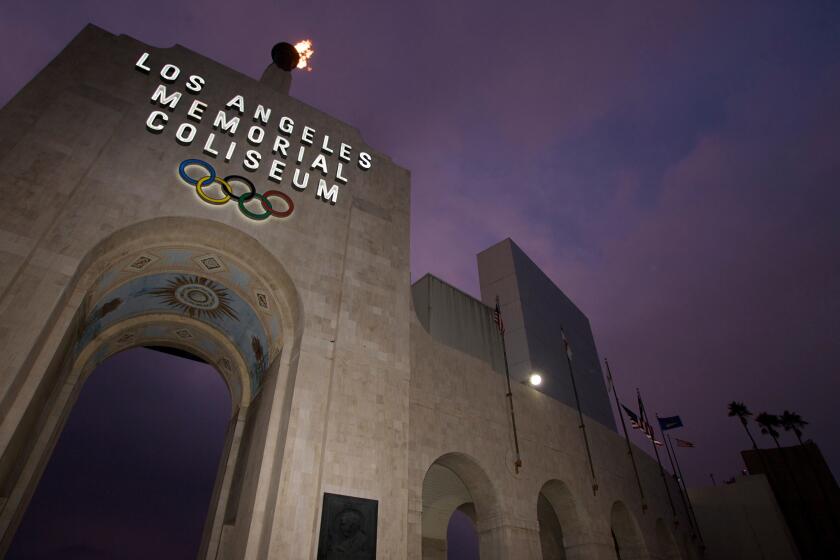Native American minority contracts are under scrutiny as officials vow strict enforcement

Federal and state lawmakers and regulators have called for inquiries and tighter minority-certification rules after a Times investigation found more than $300 million in government contracts went to businesses that made unsubstantiated claims of Native American ownership.
In at least a dozen cases, business owners claimed membership in one of three Cherokee groups that have no federal recognition and are considered illegitimate by recognized tribes and Native American experts. The firms received minority certifications and contracts from federal, state and local authorities, The Times found.
“These reports are deeply troubling,” said Rep. Nydia M. Velázquez (D-N.Y.), chairwoman of the House committee that oversees the U.S. Small Business Administration, which certifies companies as eligible for federal contracts set aside for minority-owned companies. “Any form of fraud or abuse in SBA’s programs is completely unacceptable.”
Velazquez said the committee “will work to advance legislation to ensure that bad actors do not fleece the taxpayer and take away work from legitimate minority contractors.”
The SBA said Monday that it has referred The Times’ findings to the agency’s Office of Inspector General for investigation. The office conducts probes into possible fraud or other wrongdoing.
A spokeswoman for the federal Bureau of Indians Affairs said it is also reviewing the matter. One of the companies examined in The Times’ report received a BIA contract for work on a Native American college. The owner of the company insisted he is one-sixteenth Cherokee.
In California, Assemblyman James Ramos (D-Highland), who leads the Select Committee on Native American Affairs, said he’s asked the state’s research bureau to compile a list of all minority contracts as part of an inquiry into how many might have been granted to firms based on unverified Native American claims.
At least two California companies, one of which is owned by relatives of House Minority Leader Kevin McCarthy (R-Bakersfield), have obtained minority certifications because their owners were members of one of the self-described Cherokee groups that have no government recognition.
“In the next week, we’ll have some type of clarity,” said Ramos, a past chairman of the San Manuel Band of Mission Indians. “We’re going to make sure we follow this through to a piece of legislation.”
The minority certifications and contracts were issued in 18 states. Officials in Oklahoma, Arkansas and Kansas said they have removed or are reviewing the minority certification of one of the contractors, Missouri-based Columbia Curb & Gutter Co. The company has received $67 million in contracts reserved for minority-owned firms.
The Times called Columbia Curb & Gutter’s office seeking comment Monday. The person who answered said, “Yeah, no thanks” and hung up.
The three groups labeled illegitimate by recognized tribes and Native American genealogists are the Northern Cherokee Nation, based in Clinton, Mo.; the Western Cherokee Nation of Arkansas and Missouri, based in Mansfield, Mo.; and the Northern Cherokee Nation of the Old Louisiana Territory, based in Columbia, Mo.
The Missouri attorney general’s office said Monday that it has closed its review of a complaint filed by state lawmaker Rocky Miller, a citizen of the federally recognized Cherokee Nation, regarding the Northern Cherokee Nation’s claims that it is state recognized. The office said Miller’s request that it take action against the group “lacked specific information or facts that could supplement the complaint.”
Kenn “Grey Elk” Descombes, the chief of the Northern Cherokee Nation, said the recognized Cherokee tribes have unfairly denounced his organization because they don’t want competition for federal funds.
Under the federal regulations, minority contracts are reserved for companies whose owners can demonstrate social and economic disadvantages because of their race or ethnicity. Among the eligible groups are Native Americans.
Each year, the federal government awards several billion dollars in contracts to Native American-owned companies. State and local agencies award contracts under separate affirmative action programs, using criteria similar to the SBA’s to determine who is Native American.
Newsom apologizes for California’s history of violence against Native Americans »
The Times cited government records in showing that the vetting process for Native American applicants appears weak in many cases, with officials accepting flimsy documentation or unverified claims of discrimination based on ethnicity. The process is often opaque, with little independent oversight.
In applying for the minority programs, 12 of the 14 business owners whose certifications were reviewed by The Times claimed membership in one of the unrecognized Cherokee groups, according to government records and interviews.
The applications for the other two owners were not available. Their businesses were identified as Native American-owned in a Small Business Administration database and in federal contracting records.
For each of the 14 companies, one or more census, birth, marriage or other government records identified the owners’ ancestors as white. The ancestors also do not appear on rolls that government-recognized tribes use to confirm Cherokee citizenship, according to census records and an expert on Cherokee genealogy.
The total awarded to questionable Native American contractors is almost certainly significantly higher than $300 million. Documenting the full amount is difficult because the SBA discards records six years after companies graduate out of its program and some state and local agencies also destroy records or refuse to release them.
In referring The Times’ findings to its inspector general, the SBA said in a statement that the agency “took steps eight years ago so that Native American businesses applying for minority contracting programs are deemed legitimate.” At the time, the SBA simplified its regulations to limit certifications of Native American contractors primarily to companies owned by members of state- or federally recognized tribes.
However, the agency also grandfathered in companies that entered the contracting program before the rule change, including firms that were the subject of The Times’ investigation.
The SBA continued to approve members of the Northern Cherokee Nation as minority contractors even though another federal agency, the Indian Arts and Crafts Board, has barred the group since at least 2003 from selling their wares as Native American-made because it is not a recognized tribe.
It is a federal crime to sell arts and crafts falsely labeled as Native American.
The 2020 census is coming. Will Native Americans be counted? »
Last year, a Times investigation found that a company owned by in-laws of McCarthy, then the House majority leader, won more than $7 million in federal contracts because of his brother-in-law’s membership in the Northern Cherokee Nation.
Most of the work awarded to the company, Vortex Construction, was for military projects in and around McCarthy’s district, including projects he supported in Congress.
McCarthy and the brother-in-law, William Wages, said they did nothing wrong. Wages, whose sister is married to McCarthy, said he is one-eighth Cherokee. Census and birth records available to The Times dating to 1850 show no Cherokees among his ancestors.
After the Times story was published, the SBA asked its inspector general to investigate how and why Vortex qualified for the contracts.
A spokesman for the inspector general said the office does not comment on investigations.
More to Read
Sign up for Essential California
The most important California stories and recommendations in your inbox every morning.
You may occasionally receive promotional content from the Los Angeles Times.












